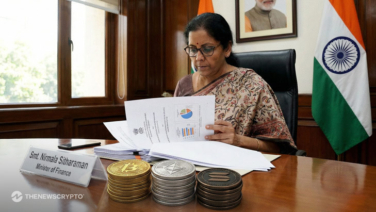- Last year, the government wanted to award the role of crypto regulation to SEBI.
- Stars might face heavy fines for promoting a false or deceptive claim in a commercial.
The Securities and Exchange Board of India (SEBI), India’s market regulator, collaborates with the Reserve Bank of India (RBI) on crypto-related issues. Suggesting it would be “hard to regulate crypto” in a submission to a parliamentary standing committee on finance, the Securities and Exchange Board of India (SEBI) said so. In addition, a separate cryptocurrency regulator was suggested. Last year, the government wanted to award the role of crypto regulation to SEBI.
Cryptocurrency has been a problem for the Reserve Bank of India (RBI) for some time now. The RBI’s stance on cryptocurrency has been antagonistic and unyielding over the past three to four years, ever since crypto erupted in India’s financial sector with great ferocity. Cryptocurrency’s potential to “financially destabilise” and “dollarize” the Indian economy has been repeatedly reaffirmed by the government.
No Clear Stance Yet
Even though the legality of cryptocurrencies in India is still up in the air, the government intends to classify them as virtual digital assets (VDAs) rather than currencies. SEBI recommended that RBI be in charge of overseeing money laundering and Know Your Customer (KYC) protocols linked to cryptocurrency. Consumer Protection Act may also be used to safeguard the interests of investors. It has always been a top priority for the regulatory authorities to prevent investors from falling prey to celebrity crypto endorsements without performing their own due diligence.
Last month, celebrities and influencers were barred from promoting “unregulated crypto”. Stars might face heavy fines for promoting a false or deceptive claim in a commercial. Additionally, they might be forbidden from promoting any other product for three years. On the other side, influencers like Anushka Rathod advocate for educating the public about cryptocurrencies rather than outright promoting them as financial opportunities.








